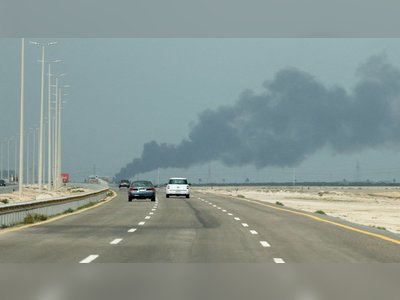
Death, disease, and desperation: Life in Antakya after the earthquake
Turkey's southern city of Antakya - and its people - are among the hardest hit. It was once an important trading centre and the Roman Empire’s third-largest city. But the devastating earthquakes have left almost nothing in this city unscathed.
Kasim Gündüz is a local resident. His family has been torn apart by the catastrophe.
"My wife’s name is Shefika, I called her my gulum (rose). I called Shefika! Shefika! And I didn't hear anything back. We were married for 52 years," he said.

“I have been helping. I got my sister-in-law’s dead body out. Her head was gone," explained fellow Antakya resident Mehmet Elmaci. "My brother-in-law and their little daughter are still in there.”
**Deteriorating conditions **
Antakya was founded in 300 BC and had seen its fair share of disasters. It was destroyed and rebuilt many times during the past centuries.
But when the region was struck by a magnitude 7.8 earthquake, it caught everyone off guard. Several days into the tragedy, help was still slow to arrive.
Mehmet is himself a survivor but says he doesn’t remember how he managed to get out of the rubble. He told Euronews that since the earthquake, he’s had to sleep in his car with his wife and their 7-month-old son.
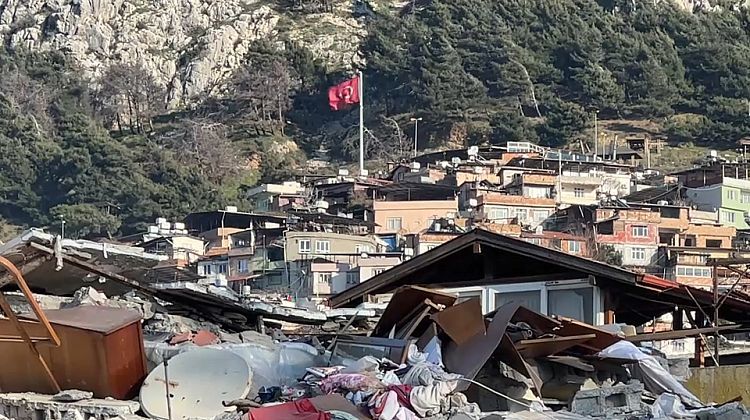
Without electricity, water, or sanitation, those who survived the earthquake are at great risk. Infectious diseases such as scabies and cholera are spreading fast and aftershocks occur every day.
In the first few hours following the earthquake, the only hands available to sift through the rubble were those of survivors who were in shock, wounded, and had never done anything like this before.
Then came the volunteers. Erdem, a builder from Istanbul, rushed to Antakya as soon as he heard of the quakes.
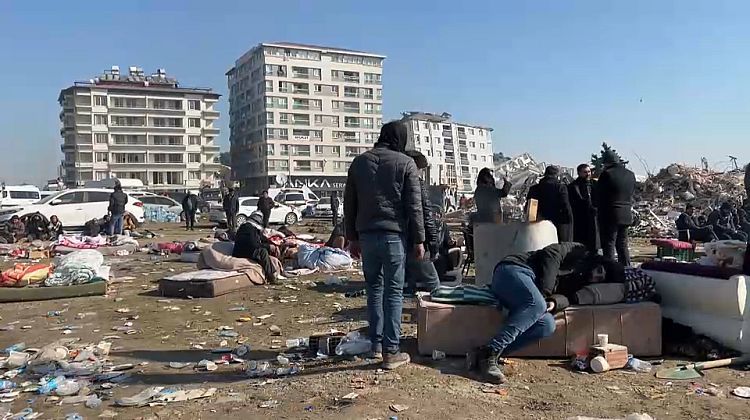
“I have tried to do what needed to be done here. I was able to get [a] mother out. While I was trying to reach her in her room, by breaking her closet, she started to scream – ‘why are you breaking my stuff? who are you?’ She yelled at me,” he explained.
"I [also] managed to get a boy and his big sister out. I really wanted to get more people out but I am all alone now and there were some problems in the team. I don’t think I could do anything by myself now."
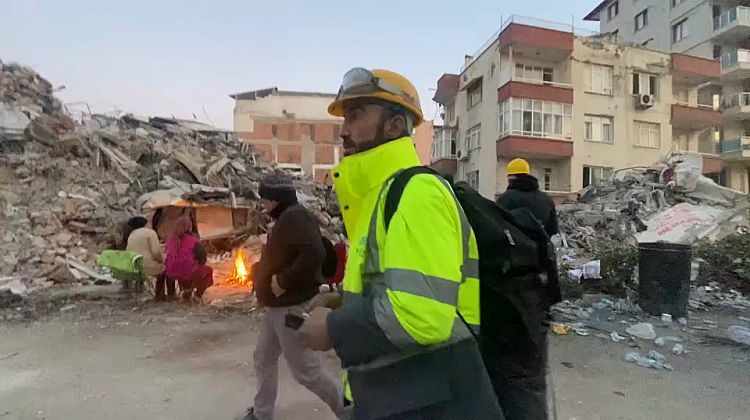
Anger aimed at Ankara
Turkish President Recep Tayyip Erdogan said nothing could have been done to prepare the country for such a tragedy. But not everyone in Antakya agrees.
“The first day we came here, we wanted to drill but we could not even find a generator or jackhammer. There was no AFAD or officials here," explained Antakya resident Ibrahim Halil.
"On the second day, some machines came. These people told me that they cannot work right now because they need an order from 'above'. And they waited for that order. The work is not organised nor is it being done properly. Not a single well-trained person came here,” he added.
Several days after the earthquake, authorities still didn’t seem to have the situation under control - despite an outpouring of international help.
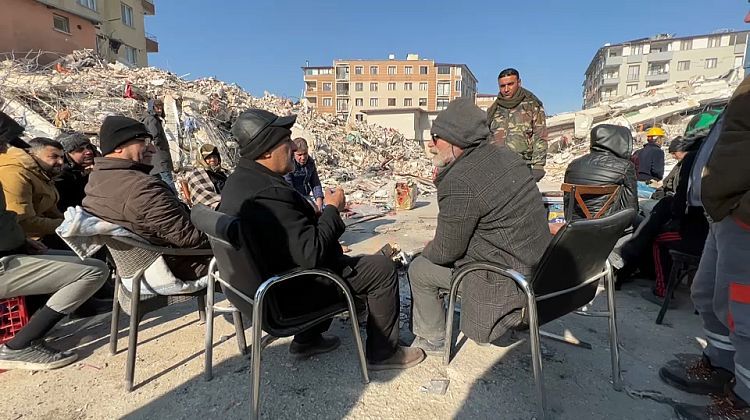
There is disagreement over who or what is to blame for the chaos. Some say it is internal rifts, while others blame poor governance.
"The situation of aid coming late is not an act of neglect. But because those diggers, trucks, and machines came from other provinces, it took some time to bring them here. But now they are doing an excellent job," said local resident Cemal Gungor.
"The only reason local municipalities did not work well is because their power had been reduced. No one could move even an inch without permission from above," said another resident.
The catastrophe has brought Erdoğan’s centralised governing system under renewed scrutiny, giving the opposition a powerful argument to mount a challenge in this year’s presidential election - a vote some here believe Erdogan may try to postpone if he feels his chances of winning a third term are compromised.
Bodies piling up
Antakya’s main cemetery offers a glimpse into the magnitude of the disaster. There isn’t enough space to bury the dead, so authorities opened a mass grave site on the outskirts of the city.
Unidentified bodies have DNA samples collected from them so that families can, one day, give their loved ones a proper sendoff.
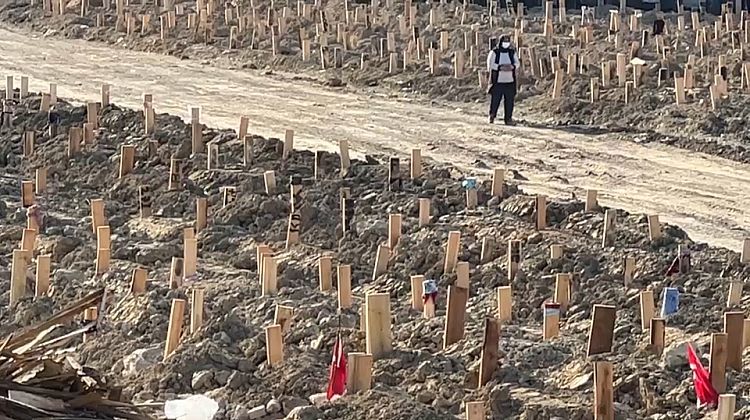
The race to save the living has continued well past what feels like a normal window of opportunity. But against all odds, survivors have kept appearing.
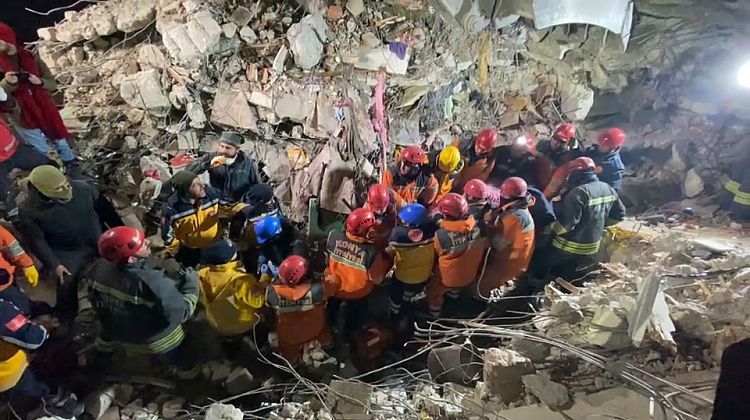
One such survivor was Fatma, a 25-year-old refugee from Syria. After escaping the horrors of war in her home country, she survived 140 hours under the rubble. She’s now given yet another chance – just like this city – at rebirth.











